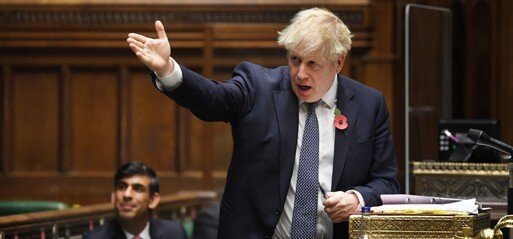Hawzah News Agency (London - UK) - “We strongly disagree with the decision to suspend public worship during this time,” the faith leaders said in a letter to Prime Minister, Boris Johnson, which argued that there was no scientific evidence for the ban.
“We have had reaffirmed, through the bitter experience of the last six months, the critical role that faith plays in moments of tremendous crisis, and we believe public worship is essential,” the letter said. Shaykh Dr Asim Yusuf, Chair of The British Board of Scholars and Imams, and Sayed Yousif Al-Khoei of the Al-Khoei Foundation were among the signatures together with the Archbishops of Canterbury and York, the Bishop of London, Catholic, Pentecostal and orthodox Judaism leader along with Hindu and Sikh representatives.
Asked what the Prime Minister’s response was to the letter, his official spokesperson insisted that the Government “doesn’t take imposing further restrictions lightly” and that it was “vital to stop the spread of the virus.”
Challenged to publish the scientific evidence to support the ban, the spokesman avoided the question by simply saying it was “a package of measures that is imposed in order to slow the spread of the virus.”
During the PMQs on November 10, Johnson indicated that he was not going to change his mind on public worship, when he said that he was “so deeply sorry that these restrictions have to be put in place right now” but would “work as hard and fast as we can to allow people to worship in the way they want from December 2” when the lockdown is supposed to end.
In their letter, the faith leaders said that they had collaborated closely with ministers and officials since the pandemic began and had demonstrated by their action that places of worship and public worship can be made safe from COVID-19 transmission.
But while emphasizing the “importance of proceeding on the basis of good quality scientific and medical evidence”, they said they consider “there appears to be, now, no scientific justification for the wholesale suspension of public worship.”
Public worship is “necessary for social cohesion and connectedness,” public worship is “important for the mental health of our nation,” public worship is “an essential sign of hope,” their letter warned.
“Government is making decisions about what aspects of our life during this period of restrictions are essential. We believe we have demonstrated that continuation of public worship is essential.”
The Muslim Council of Britain separately called for an urgent review of restrictions, criticizing the Government’s “inadequate consultation and poor engagement with faith communities”.
A legal challenge over the ban on communal worship has also been launched for a judicial review under the Civil Procedure Rules by Christian Concern, a conservative faith-based organization, with the backing of more than 70 leaders from different Christian traditions.


Your Comment